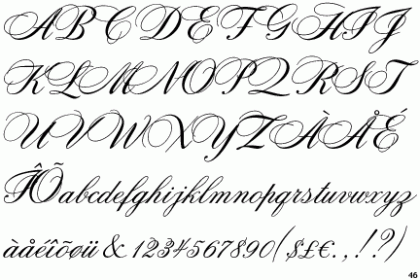How Not to Pray
Devra Torres | Aug 30, 2013 | 10 cmts
Here I am, a Christian for more than four decades, still trying to figure out how to pray.
One of the sillier obstacles I’ve placed in my own path, it turns out, is avoiding Difficulties in Mental Prayer, by Eugene Boylan. I'm not certain why I did this. Maybe the title wasn’t sufficiently scintillating. Maybe I was prejudiced against people named Eugene. But I’d gotten it into my head that this was one of those pedantic but edifying books, and that my most palatable option was to continue feeling guilty for not having read it.
I’m happy to report I was wrong, This is a very helpful book.
Boylan has a gift for demolishing self-imposed, imaginary obstacles that can stall a person’s spiritual life indefinitely. Many people experience prayer as a never-ending burden, but persevere anyhow.

Others give up altogether, turning to God only in case of emergency. Why is that?
Well, it depends, but one reason is a misguided fear of irreverence.
We sit (or kneel) down to pray and we imagine we’re supposed to be unremittingly formal and ceremonious.

We imagine that offering God our best means composing eloquent prose, to be spoken in an artificially solemn or emotional tone of voice. Persevering in such orations gets old fast.
But, Boylan advises:
…”fine speeches” should be avoided like a plague in private prayer.
And:
Not only does our Lord not look for fine speeches, but He does not even ask for good grammar.
Sometimes the deepest prayer is the most inarticulate of all.

He even gets specific about word choice:
If the style of the Church’s public prayer comes naturally to one, well and good; if not, no attempt should be made to cast one’s prayers in such a style. “Vouchsafe” and other words of that sort are best left unsaid.
It comes down to treating God as a person, rather than an inanimate foil for our own lofty compositions.
For many souls, an abstract or impersonal view of virtue, of perfection, of the joy of heaven, or of any such consideration, will generally leave the heart untouched and excite no desires. It neither produces prayer nor presses one on to the practice of virtue. Personal contact with our Lord puts the whole spiritual life in an entirely different light…”
(emphasis mine)
Boylan shows a healthy respect for differences of temperament and personality throughout, but I suspect lots of his advice would be helpful to just about everybody. The theme is interacting with God as one person with another.

People who favor rote prayer and archaic language can let fear of irreverence interfere. But those who think they're praying spontaneously can also get into ruts, spiritual “templates,” reeling off casual phrases on automatic pilot. I read a funny article once about how it would sound if kids talked to their parents the way some people talk to God. It might go something like this:
Oh, Dad, I just wanna praise you and thank you this day, as we come together in the living room. I just wanna thank you and praise you. And, Dad, if it be your will, I ask that you shower me with a couple dollars to go to the candy store…
See what I mean?
The good news is, since it would be the height of silliness and futility to try to put on an act so as to "make an impression with" God, we can spare ourselves the exertions of trying.

If treating other human beings like that is disrespectful to their personhood, doing so with God is disrespectful to common sense, too.
(Just to be clear, this is by no means an argument against elevated language in either liturgy or personal prayer. It's no brief for the sort of flat and banal phrases that the new translation of the Mass did away with a couple years ago.)
Boylan has a lot more to say, a lot more pseudo-obstacles to pull down. This is just the gist of the first few chapters, with many more to come, including "The Difficulties of Not Praying."
So stay tuned.

Comments (10)
James Barclay
Sep 17, 2013 3:14am
There is this old Jewish story my aunt Jennie told me: Two farmers all their lives argued about praying to God. The first, being very devout, said that you had to go to the schul everyday, say dnindl and pray every night as the rabbi and tradition teaches. The other said it didn't matter whether he believed in God or not and didn't have go through all those things. The first farmer went everyday and prayed and the second farmer everyday had an argument against it, even studied philosophy to argue better. But the first farmer didn't pay much attention. This went on everyday for all their lives until they died. Both came before the Lord and he told the first farmer that he had prayed and done well and could go to heaven. The second farmer, thinking he would not be chosen, turned away. "Why do you turnaway, My Son?" The farmer said "I didn't think prayer was important, so I didn't." God said, "My Son, everyday and every night you kept me upmost in your mind. You were praying and didn't know it. Please, come into heaven."
Devra Torres
Sep 18, 2013 3:51pm
James, I just want to say, that's the most fascinating short bio of a commenter I've ever read, and I don't even understand half of it!
I like the story, although I do think it could be misinterpreted to mean there's no obligation to find out who God is and how He desires us to pray. But it speaks to the mystery of how we human beings imagine we're doing, and how much we imagine our actions are worth, and how we appear in God's eyes. On the one hand, there are the objective commandments; on the other, everything that's going on within the subject: how he uses his freedom, how he understands his own actions, how he may doing so much more or less than he thinks he is.
I've been thinking of doing a post about what "Judge not, lest you be judged," not in light of how we should refrain from judging other people, but in light of how we should be very, very wary of judging our own spiritual progress.
James Barclay
Sep 18, 2013 4:08pm
Thank you so, Devra. I've never been able to pray like normal people (?) tend to pray. I cannot do it and it simply makes no sense to me. It is empty. And, of course, I cannot judge or tell others how or how not to pray. But I can study and reason. I can think and argue with myself. I can witness. I like this admonition of either St. Paul or was it St. Peter that one should pray alone with God. All I know of it all is how what I do makes me feel or what it does to me. That might not make any sense, either. But since when did one's spirtuality or communion with God make any sense at all, if it ever was supposed to? Suffice it to say that I do not examine it too closely. But also suffice it to say that it is, to me, essential.
Devra Torres
Sep 18, 2013 4:26pm
I've read more of the book since I wrote this post, and I ran into this, which I found mindboggling (in a good way):
OK,I don't pretend to understand this, but it seems worth chewing on!
Devra Torres
Sep 18, 2013 10:39pm
What struck me especially about this book, and also about another that I would very, very highly recommend--Time for God, by Jacques Philippe--is how easy it is to be misguided about prayer. We're always either aiming at something that's not especially helpful, and mistaking it for the ideal, or else failing to value something that God is actually pleased with.
James Barclay
Sep 20, 2013 3:16am
Devra, that's very astute and certainly, to my way of thinking, right on. I have not read the book. I can't say, though, that I am much concerned about what God is "pleased with", because I honestly don't know other than an idea that living an authentic life might please Him (Her?) best. About the worst mistake I could ever make would be to anthropomophize God which the Bible did a great deal andthe rest of Christianity has kept going with devastating effect. I was very pleased and surprised with the Pope's pronouncement/admonitiona that wed should be more spiritual, have greater mercy, exercise our inclusiveness and not our exclusivity and treat each other with Caritas. (I don't know his actual words, but I think that's how it basically went). I would have expected as much from the man. He is, to me, truly a personalist. and in my mortal mind I'm convinced God is very pleased with him. I'll order that book from the library.
Devra Torres
Sep 20, 2013 7:57am
Yes, the more I read the Pope's words, the more personalist he sounds to me.
There is certainly antrhopomorphism in the Bible, but where it begins and ends is tricky to define, and in order to do it accurately one would need some idea of God to measure it against. I think some of it is clearly poetic (and meant to be poetic, not trying and failing to be literally descriptive). And then some of it is just inevitable, because human beings are what we know, and our language is limited, and even if you believe (as I do) that the human authors are inspired, and that we can learn there are limits to the way you can express the reality of God in human language.
How do you see it? What do you mean by "devastating effect"?
Devra Torres
Sep 20, 2013 8:08am
Oops, it's not letting me edit that comment. I meant to say, even if you believe, as I do, that the human authors were inspired by God, and that therefore we can genuinely learn about God (and what pleases Him) from reading it, human language is limited.
Then, of course, if you believe (as I do) in the Incarnation--that Jesus Christ is true God and true man--it becomes even more complicated to discern what's anthropomorphic and what's not!
James Barclay
Sep 20, 2013 6:53pm
I see the problem and I share it, Devra. Its a tough nut. Not being able to describe because language, well it basically "sucks" and I don't know anyone who tells me he or she can connect with his or her god without making him (or her) into a human form. to me, "Inspired" is a very dangerous word used from everything from "God told me to do it" horrors to claiming that someone's poetic pronouncement is the same as "God spoke to me and to tell you this and please buy my new book from Zondervan that tells you what it is- and make me rich." Its almost a proverb that will buy that one hook, line an sinker and act on it. I can't get involved with the Trinity or transsubstantiation or what Constantine said was going to be the New Testament and what wasn't and had to be burned- along with the errant writers. To me whsat inspires is that I seek, that I wonder, that I am illuminated, that those gifts which make me human and how I interact with others are inescapably entwined with my Faith. Meanwhile, what the #$&*@&% do I know.
Devra Torres
Sep 22, 2013 11:30pm
Yes, "inspiration" is an overused and way-too-elastic concept. "Inspiration of Scripture," the way I'm using it, is a very limited and specific term, meaning not that God dictated it to the human authors but that they were led to put down what He willed them to put down. The interesting thing is that He did this without overriding their own personality or style, and through all kinds of genres, everything from poetry to historical accounts of military exploits.
And then the means of determining what's inspired and what's not has been done very carefully--a very different thing from some unbalanced or or profit-minded person declaring that he's "inspired" and therefore everyone needs to obey him, or buy his products. I have heard the claim that Constantine decided what was and wasn't part of the Bible, but that's a common misunderstanding. He did call a council, but it didn't determine the canon of Scripture.
I know questions like the Trinity and the in's and out's of transubstantiation can seem like technicalities, but they touch on the nature of God and His dealings with us, so I would say they definitely qualify as worthwhile objects of anybody's seeking and wondering!